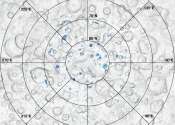The Planetary Science Institute (PSI) is a research institute based in Tucson, Arizona, focusing on planetary science.
Founded in 1972 on a non-profit basis, it is involved in many NASA missions, the study of Mars, asteroids, comets, interplanetary dust, the formation of the Solar System, extrasolar planets, the origin of life, and other scientific topics.
It is now actively participating in the Dawn mission, scheduled to explore Vesta between 2011 and 2012, and Ceres in 2015.
PSI manages the spacecraft's Gamma-Ray and Neutron Detector, which will map the surfaces of the two minor planets to determine how they were formed and evolved.
The Institute's orbit@home is a distributed computing project through which the public can help in the search for near-Earth objects.
The Institute is also involved in science education through school programs, popular science books and art.
Its scientific Staff are distributed in 16 US states and in the United Kingdom, Switzerland, France, Russia and Australia.
Its present director (2009) is Dr. Mark V. Sykes.
- Website
- http://www.psi.edu/
- Wikipedia
- http://en.wikipedia.org/wiki/Planetary_Science_Institute
Some content from Wikipedia,
licensed under CC BY-SA
Subscribe to rss feed

